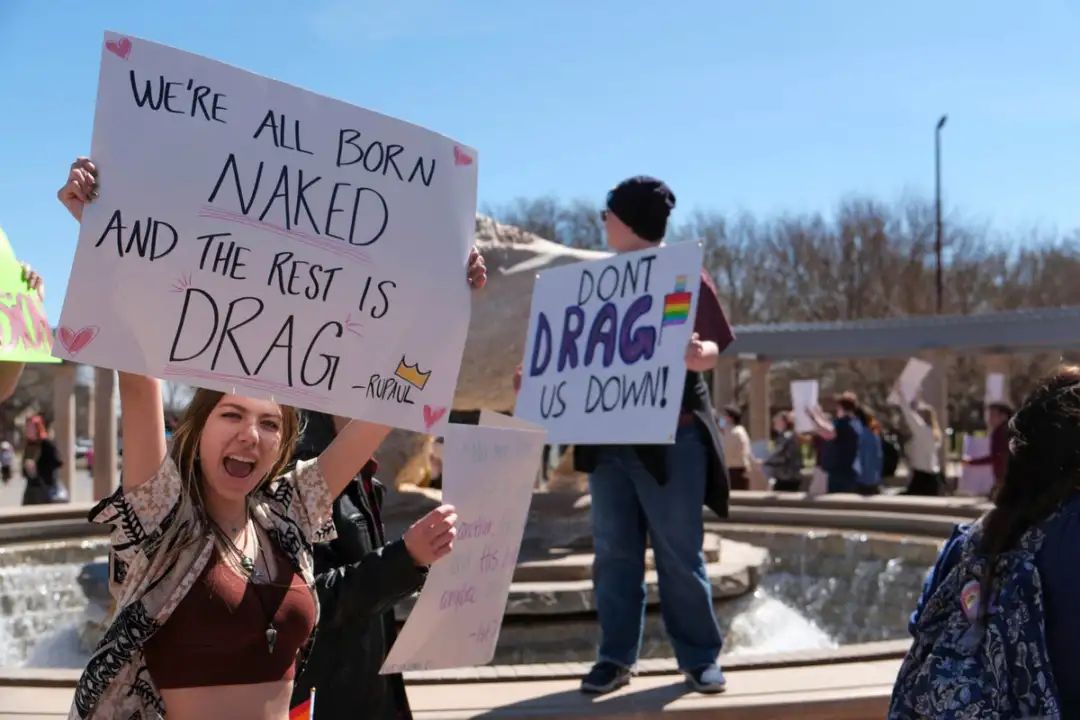Texas students urge Supreme Court to intervene in drag show ban
Spectrum WT, a student-led LGBT+ organisation at West Texas A&M University, as well as two of its student leaders, claim that the public university’s president Dr Walter Wendler engaged in viewpoint-based discrimination when he suddenly cancelled the group’s planned charity drag show event last year.
The plaintiffs, represented by Foundation for Individual Rights and Expression, allege Dr Wendler invoked his “personal opinion” of drag shows to prevent them from putting on the event, just 11 days before it due to take place on campus.
Dr Wendler sent a 700-word email to the campus community barring drag shows because they “stereotype women in cartoon-like extremes” and “are deceive, divisive and demoralizing”, the students say.
Now, they’re asking Supreme Court Justice Samuel Alito to pause the ban immediately so that they can host the on-campus event this 22 March and to also limit public college and university officials from censoring expressions based on personal opinion.
“The First Amendment’s promise of neutrality is at its zenith at America’s public colleges and universities, where “students must always remain free to inquire, to study and to evaluate, to gain new maturity and understanding; otherwise our civilization will stagnate and die,'” the plaintiffs say in their lawsuit.
The case arrives at a time of heightened political tensions on school campuses across the country. Over the last few years, schools on every level from elementary to higher education have had to address or make rules on social issues due to the current climate.
A growing conservative moment is pressuring schools to diminish teaching or speaking about race, gender, sexual orientation and more. Higher education institutions are being pushed to end or prevent diversity and inclusion programs and a lawsuit challenging affirmative action recently made its way up to the Supreme Court.
Separately, anti-drag rhetoric and legislation have become mainstream among conservatives. Last year, Florida unsuccessfully tried to enact a law barring children from attending drag show performances, in part, thanks to an unsubstantiated claim that it indoctrinates children.
A similar law was declared unconstitutional in Texas last year as well.
Spectrum WT and its students claim that in preparing to host their drag show they enacted policies to make it less controversial, like prohibiting the presence of minors without a parent or guardian, instructing performers to avoid profane music or “lewd” conduct and making the show appropriate for those over 13 years old.
But Dr Wendler insisted a drag show was discriminatory toward women and that it was impossible to put together a “harmless” drag show.
Though the students ended up holding the event off-campus they still sued in the district court. The court declined to pause the ban saying they had “not clearly established that all drag shows are inherently expressive”.
The students submitted an expedited appeal to the Fifth Circuit but the appeals court declined to hear the case quickly, only agreeing to hear oral arguments the week commencing 29 April.
Now, the case lies in the hands of the Supreme Court.
Justice Alito has asked West Texas A&M to respond to the students’ application by 13 March.
West Texas A&M has declined to comment on the ongoing litigation.
Texas power company admits equipment may have caused devastating blaze
Meghan-backed report finds gaps in portrayals of mothers on TV
Texas company claims to have new evidence in search for missing flight MH370






